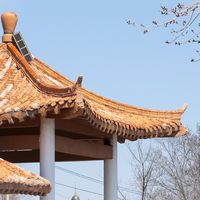Geocultural Power: China's Quest to Revive the Silk Roads for the Twenty-First Century

A new book has been published - Geocultural Power: China’s Quest to Revive the Silk Roads for the Twenty First Century (Uni of Chicago Press 2019). The author, Tim Winter, is Professor in Critical Heritage Studies at the University of Western Australia, Perth.
An informative website - Silk Road Futures - accompanies the publication.
China's Belt and Road Initiative aims to connect continents and integrate Eurasia through collaborations spanning trade and infrastructure, culture and finance. Launched in 2013, it incorporates more than seventy countries and two-thirds of the world's population. But what does it mean to "revive" the Silk Roads for the twenty-first century?
Until now Belt and Road has been discussed as a geopolitical and geoeconomic project. This book introduces geocultural power to the analysis of international affairs.
Tim Winter highlights how Belt and Road bundles geopolitical ambition and infrastructure with carefully curated histories to produce a grand narrative of transcontinental connectivity: past, present and future. As Iran, Greece, Sri Lanka, Kenya, Malaysia and others mobilize the Silk Roads to find diplomatic and cultural connection, China becomes the new author of Eurasian history and the architect of the bridge between East and West. In a diplomatic dance of forgetting, episodes of violence and bloodshed are left behind for a language of shared heritage that crosses borders in ways that further an increasingly networked China-driven economy.
Similar content
posted on
26 Jul 2023
posted on
31 Oct 2011
12 Sep 2015 - 28 Feb 2016
23 Jan 2020 - 24 Jan 2020
posted on
01 Apr 2019
from - to
01 Sep 2016 - 04 Jun 2017



